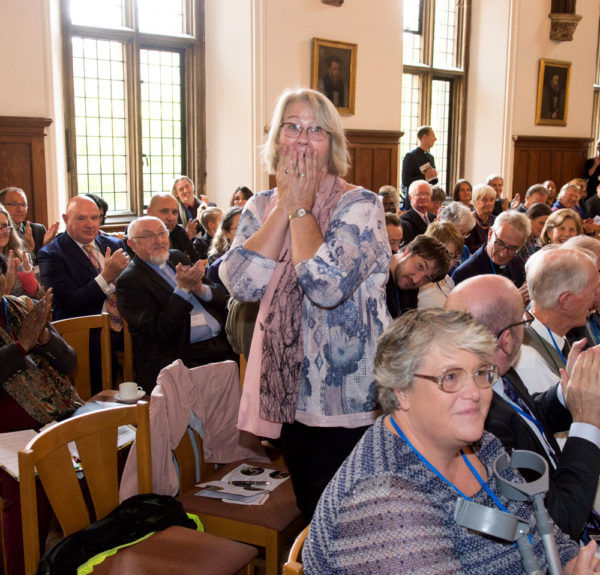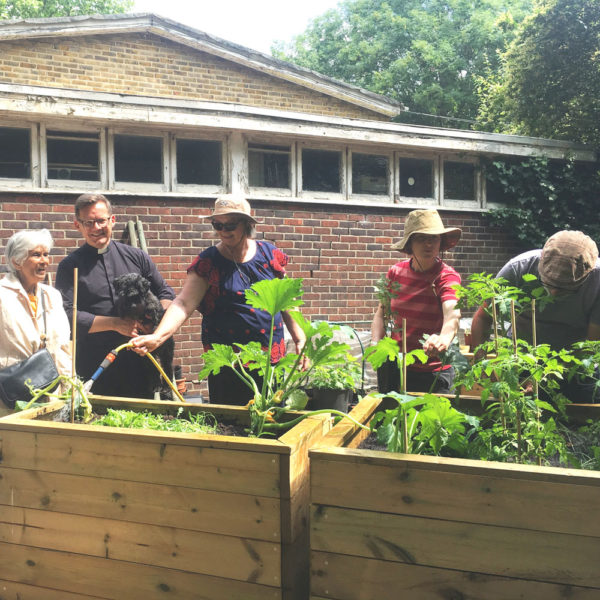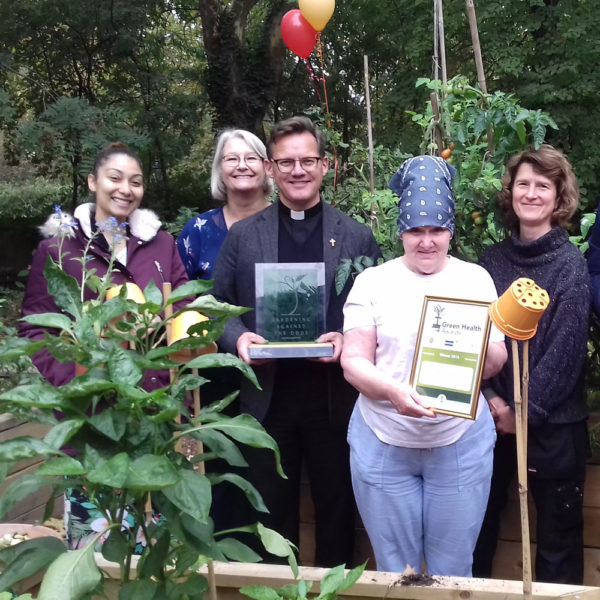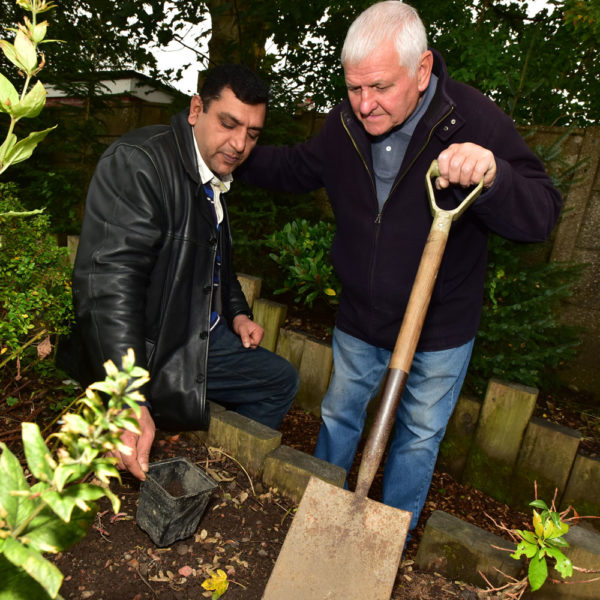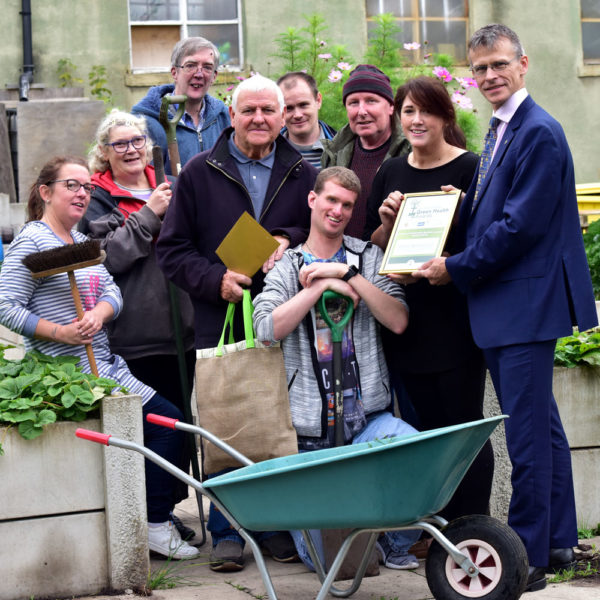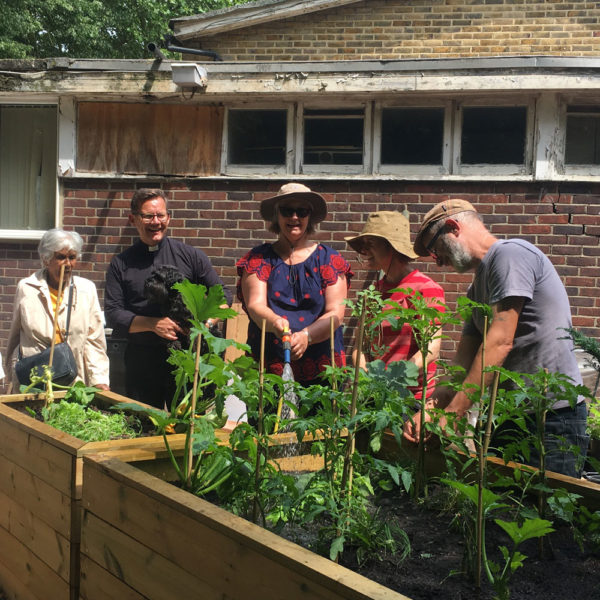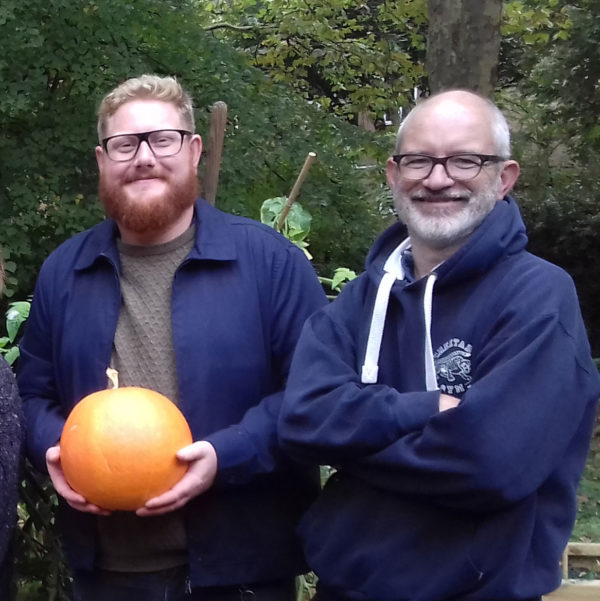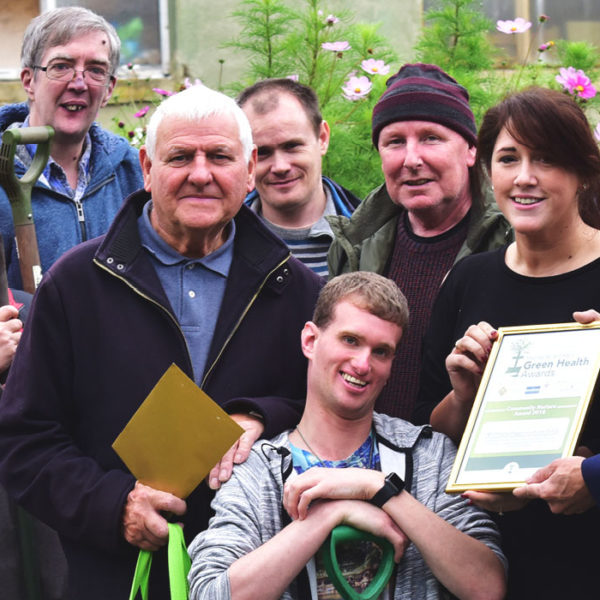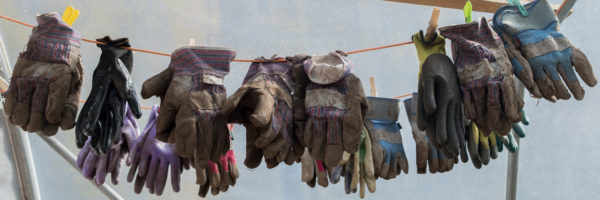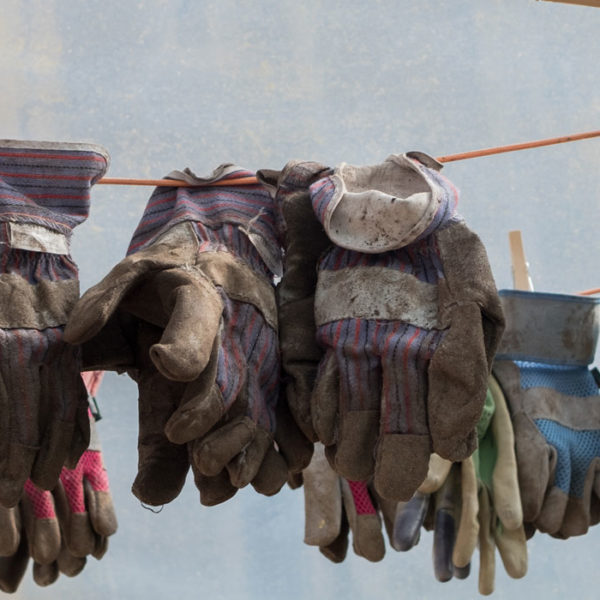Therapeutic gardening in church spaces
The links between gardening and health can often be spiritual. That is why the Green Health project is encouraging faith-based organisations to use the spaces around their buildings for simple therapeutic gardening projects. Planting a bulb and watching it grow can make a big difference.
Green Health Live – launched last year in partnership with The Conservation Foundation, The Church Times and the Guild of Health and St Raphael – promotes links between nature and human health and builds on the success of The Conservation Foundation’s Gardening Against The Odds programme.
Green Health Live 2 took place at Lambeth Palace on 5 June 2019, World Environment Day and was attended by chaplains, health care professionals and all those interested in the healing environment. Read the Church Times report here.
The Green Health Awards, which were presented at Green Health Live 2018, recognised projects which promote mental and/or physical wellbeing, and take place on ground that belongs to a Christian church or organisation anywhere in the UK. Download the Guild of Health and St Raphael’s resource Green Health: using church space for therapeutic gardening, which has the ten award winners’ stories and the speakers’ presentations, together with practical advice about using church green space to create community health.
Winners received their awards during a ceremony at Lambeth Palace in the autumn of 2018, as part of the Green Health Live conference. Ten projects,chosen on merit, were presented with a certificate and a set of gardening tools from our Tools Shed project. The overall winner, St Paul’s Church Camden Square, received £2000 and the Gardening Against The Odds trophy for a year. Watch Green Health – The Movie, our film of their story on how they created the garden which is used by patients at St Pancras Hospital. Listen to them being interviewed on the BBC Radio 4 Sunday programme.
The benefits of gardens
Mental health problems in local communities are now one of the biggest social issues Church of England clergy encounter, according to research published earlier this year. A survey of more than 1,000 senior clergy found that the proportion reporting that mental health is a ‘major’ or ‘significant’ problem in their local area increased sharply from 40% in 2011 to 60% in 2017. Research by the King’s Fund in 2016 found that gardening reduces depression, social isolation, anxiety and stress and alleviates symptoms of dementia.
In cities and towns, however, growing space is at a premium, and allotment waiting lists are more likely to be measured in years than months. The Green Health Awards recognise that churches are already using their green spaces to address this need, using their outdoor environment to promote mental and physical health.
Churchyards can be tightly regulated, and many have been designated sites of special scientific interest, but congregations have found these no hindrance to imaginative and sensitive projects.
What next?
The Green Health Live conference and awards have created a real buzz of excitement that feels like we are at the beginning of something really special. We want to build on this and are keen to meet others who feel the same. Some who are already doing something – others who would like to get involved.
For example, we need to make contact with doctors who are already working in the field of therapeutic gardening or who are referring patients to gardening projects. We would also like to meet more garden project organisers who are using church space or would if they could find some space.
We’ve made a ‘how to do it’ video featuring St Paul’s Church Camden Square, winners of the Green Health Awards which was premiered at Green Health Live 2 on 5 June. You can watch it here.
And as always it would be good to raise funding to help some projects get started. We are convinced that one day Green Health will be even more widespread and so do let us know if you can help.
Get in touch
As part of our ongoing support towards this project we are currently undertaking some further research and could do with your help! Please click here to find out more.
